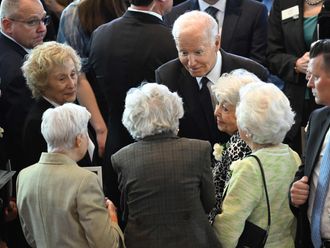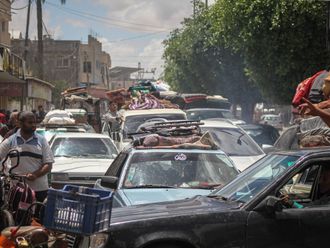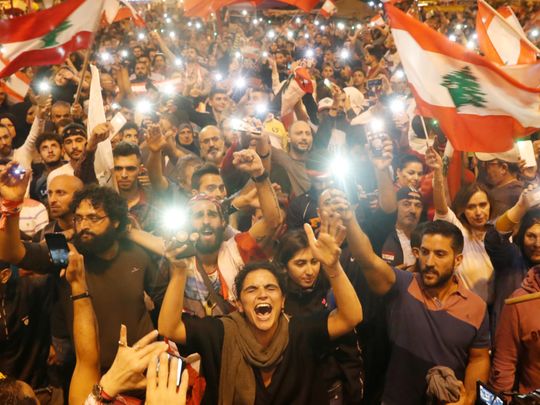
Beirut: Lebanon has been paralysed by nearly a month of mounting protests demanding an overhaul of the entire political system.
Here is a recap:
Anger at ‘WhatsApp tax’
On October 17, the government announces a tax on calls made via messaging apps such as WhatsApp, widely used in Lebanon.
Coming amid a looming economic crisis in a country whose infrastructure remains decrepit almost three decades since the end of its civil war, the announcement is seen by many as a step too far.
Thousands take to the streets in Beirut and the cities of Sidon and Tripoli, some chanting “the people demand the fall of the regime”.
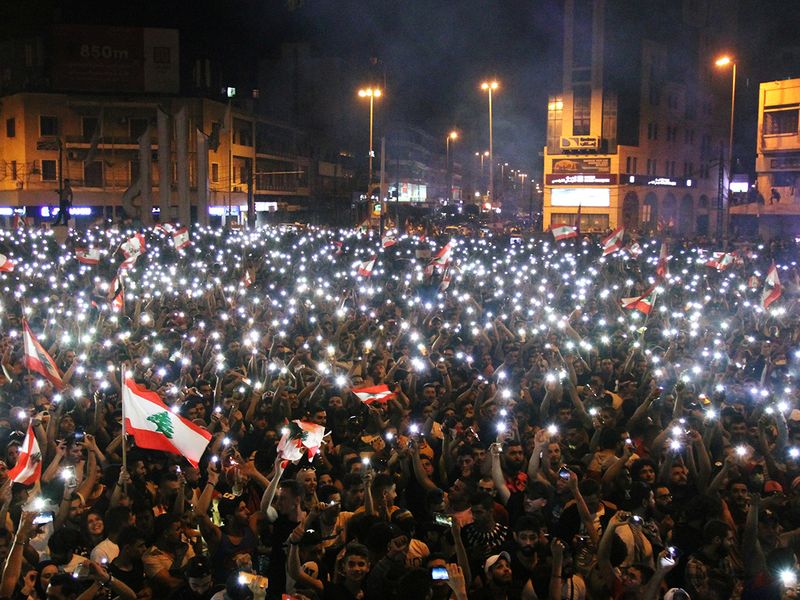
There are clashes near government headquarters in Beirut as demonstrators try to storm the building.
Security forces fire tear gas to try to disperse crowds. Hundreds of protestors also block major highways and set refuse bins and tyres alight.
The government scraps the messaging app tax later the same day, but the protests continue.
Demonstrations grow
On October 18, thousands of demonstrators from a broad spectrum of sects and political affiliations bring the capital to standstill.
They demand an overhaul of the political system, citing a broad range of grievances from austerity measures and state corruption to poor infrastructure and rampant electricity cuts. They also want to do away with sectarian-based politics.
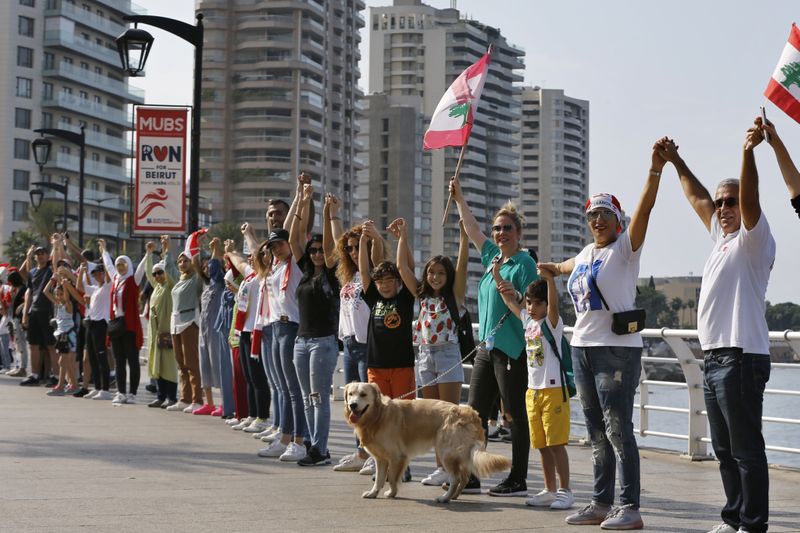
The army reopens some highways and disperses a huge crowd in central Beirut with water cannon and tear gas. Dozens are arrested.
The demonstrations swell over the following days, with major gatherings also in second city Tripoli and other centres.
Reforms announced
On October 19, the Maronite Christian Lebanese Forces party pulls its four ministers from the cabinet.
On October 21, Prime Minister Saad Hariri announces his government has approved a raft of economic reforms, including halving the salaries of lawmakers and ministers.
But protests continue and demonstrators dismiss the new measures as insufficient.
Hezbollah backs government
On October 25, the head of the powerful Shiite movement Hezbollah - which with its allies holds a majority in parliament - tells supporters not to take part in the protests.
Hassan Nasrallah also warns of chaos should the government resign.
On October 26, Hezbollah mobilises counter-demonstrations, sparking scuffles with demonstrators.
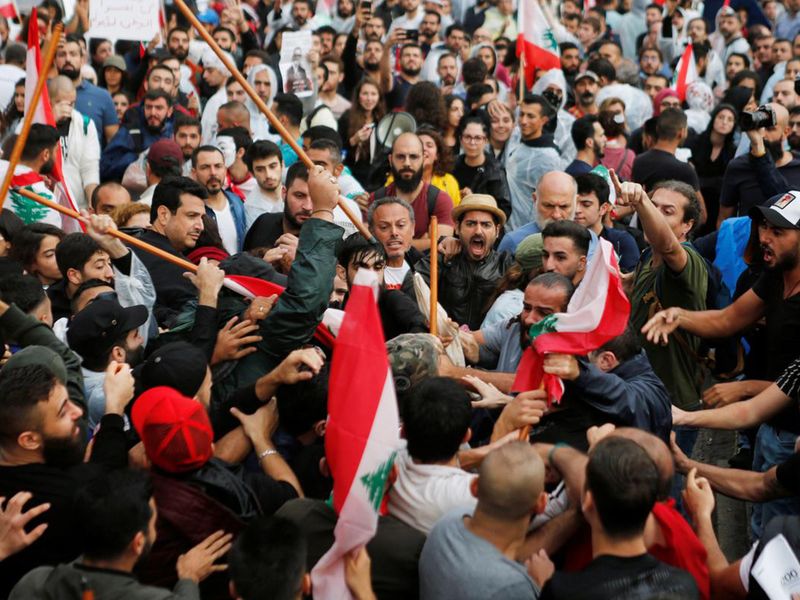
Government resigns
On October 29, dozens of counter-demonstrators attack anti-government protesters in Beirut, torching tents and tearing down banners.
That evening, Hariri submits his resignation and that of his government, prompting cheers and dancing in the streets. It is the 13th day of protests.
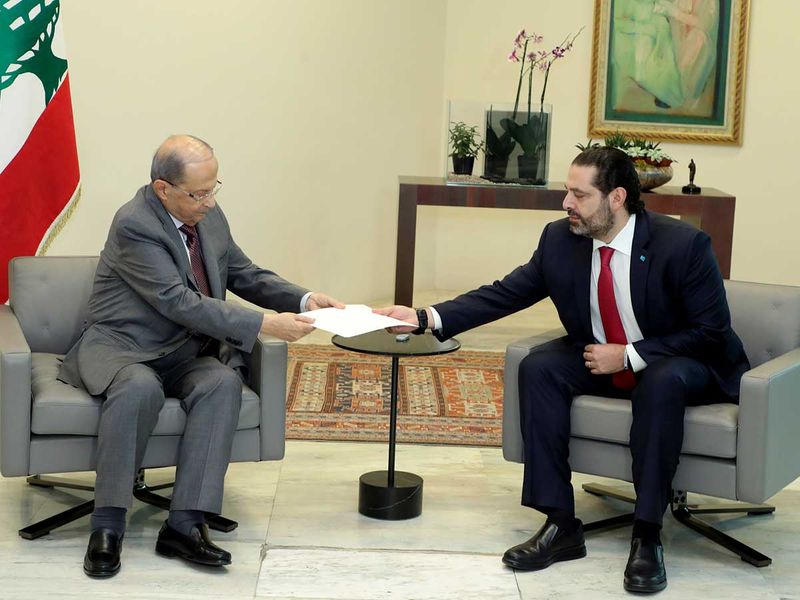
The following day, President Michel Aoun asks the government to stay on until a new cabinet is formed.
Protesters regroup over the next days, demanding a government of experts, independent of traditional political parties divided along sectarian lines.
Students join in
In a live television address on November 3, Aoun announces plans to tackle corruption, reform the economy and form a civil government.
But thousands of protesters stream back into Beirut’s Martyrs’ Square, chanting “Revolution!”
On November 6 hundreds of schoolchildren lead demonstrations across the country. The following day thousands of university and high school students also take to the streets.
![Copy of 885729-01-08 [1]-1573211774721](https://imagevars.gulfnews.com/2019/11/08/Copy-of-885729-01-08--1--1573211774721_16e4aba9f04_original-ratio.jpg)
Protester dies
On November 12, Aoun says in a television interview that Lebanese unhappy with those in power should “emigrate”. He also criticises the protest movement’s lack of leadership.
His remarks spark a new eruption of demonstrations, with protesters blocking off roads in the capital.
The army opens fire to disperse protesters south of Beirut, shooting a man who later dies of his injuries.
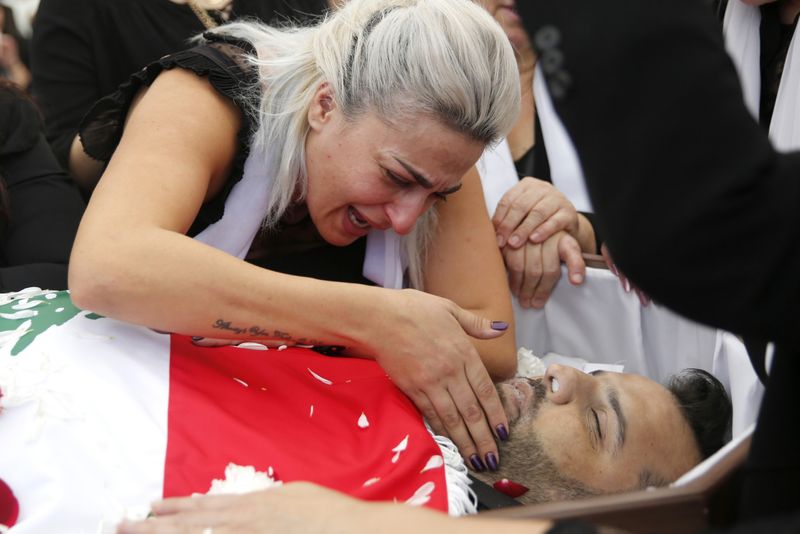
Government resists change
November 16: Lebanon’s former finance minister has backed down from becoming the protest-hit country’s new prime minister, after reports of his nomination sparked ire among demonstrators railing against the ruling elite.
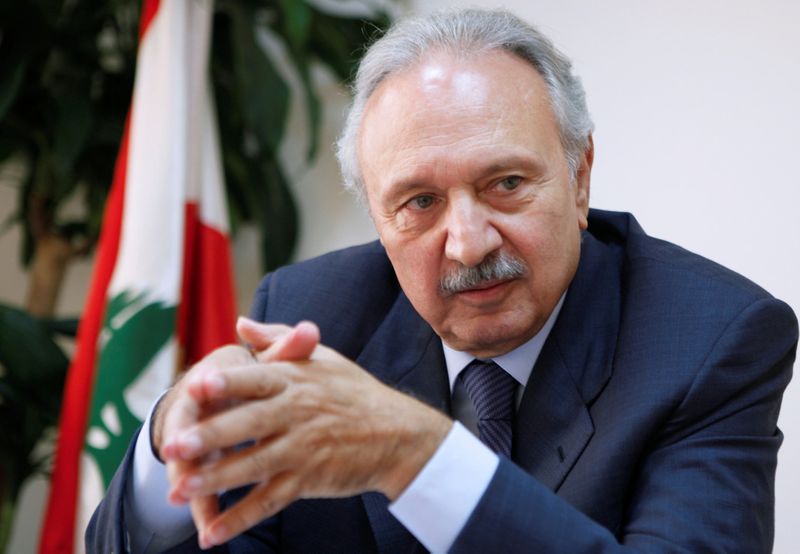
Wealthy 75-year-old businessman Mohammed Safadi said Saturday it would be difficult to form a “harmonious” government in the country rocked by a month of unprecedented nationwide protests demanding radical reform.
The tycoon said in a statement that he hoped outgoing prime minister Saad Hariri, who resigned on October 29 under pressure from the street, would be reinstated.
The government has so far resisted calls for true change to the government and has struck a more defiant tone.
-web package put together by Layelle Saad, Middle East Editor


